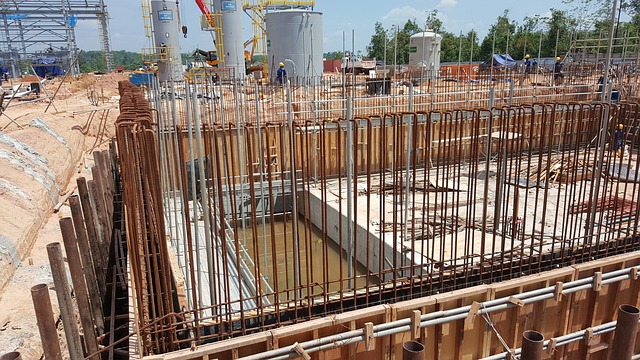What Is a Slab Foundation?

A slab foundation is a flat concrete pad poured all at once. This type of foundation is quick and easy to construct and works well in dry climates.
However, slab foundations aren’t recommended in areas that experience frost as the frost can shift and crack the foundation over time if left uncovered. A vapor barrier may help mitigate this potential issue.
Cost
Even though slab foundations cost less than other forms, they still require labor-intensive masonry work that makes them more expensive than their alternatives. Their cost per square foot, however, tends to be lower as construction expenses are distributed over a larger area.
Concrete slabs typically consist of one layer of concrete that serves both as the floor and foundation for homes, typically four inches thick. Their edges – known as footings – may be thicker to provide greater stability and strength and extend below frost lines, mitigating soil movement due to freeze-thaw cycles.
If your foundation is sinking, Underpinning Melbourne solutions like steel push piers and helical piers could be essential in stabilizing it. A single pier typically costs approximately $2,000. Complete underpinning may cost anywhere between $10,000 and $20,000.
Durability
Soil settlement damage on slab foundations can be more challenging to repair due to their direct relationship to the ground, since concrete cannot be lifted as is possible with crawl space foundations. Repair methods typically involve boring holes into the slab and pumping under it a liquid mixture of slurry to lift its foundation.
Slabs can also suffer from moisture issues due to the porous nature of concrete, so if a moisture barrier between it and soil wasn’t installed during construction it could seep through and lead to wood rot in floor joists and subflooring.
Gas and water lines that break are more difficult to access in concrete foundations, driving up repair costs while increasing repair timeframes and cost estimates. Furthermore, having no open spaces under slab foundations reduces termite infestation risk as well as pest invasion risk.
Accessibility
A slab foundation is a continuous layer of concrete poured directly on the ground at once. It usually measures four to six inches thick in its center, and may include drainage channels beneath for improved drainage.
A slab foundation is quick and inexpensive to put down, making the construction of homes on it faster and cheaper for builders. Unfortunately, however, it doesn’t provide space for ductwork or plumbing installations underneath your house like with crawl space foundations do.
Water and gas lines that break within a slab foundation can be hard to repair due to being embedded within its concrete, making repairs more time and cost intensive than usual. When they do require replacement or repair you’ll likely require to use jackhammers which increases both time and cost while increasing project complexity and timeframes considerably. On the plus side however, they’re less prone to mold infestation as there’s no room under your house where pests could hide from view – meaning less chance for mold growth!
Energy Efficiency
Slab foundations eliminate the need for basements and crawl spaces, saving both money and energy. Furthermore, these types of foundations don’t necessitate as much excavation than strip foundations do.
A slab foundation consists of one concrete layer serving both as floor and foundation for the home. This foundation type is especially popular in warm climates as it can typically be completed quickly – sometimes within one day!
Installing a vapor barrier underneath slab foundations is essential, as moisture can enter the living space and cause mold and mildew growth. Proper drainage of water from around the foundation also must be maintained.
Slab foundations can benefit from dynamic insulation technology that adjusts thermal resistance according to changing heating and cooling demands, thus lowering heating and cooling energy loads while cutting building costs significantly. This foundation type is particularly ideal for high performance buildings as insulation is included directly within the slab rather than wall footings.
A slab foundation is a flat concrete pad poured all at once. This type of foundation is quick and easy to construct and works well in dry climates. However, slab foundations aren’t recommended in areas that experience frost as the frost can shift and crack the foundation over time if left uncovered. A vapor barrier…

